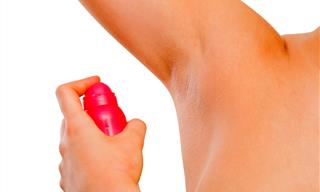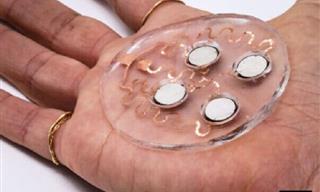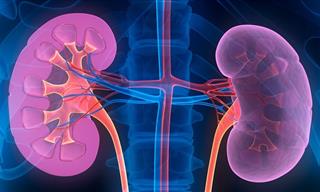Why does urine change color?
A person’s health, hydration level, diet, supplements, medications, and even bathroom habits all influence the urine color. While it’s true that urine consists mostly of water, it also normally contains various salts (sodium, chloride, and potassium) and waste products from food digestion (uric acid, urea, and urobilin).
The latter - urobilin - is created when the body breaks down red blood cells, and it’s the reason why all urine has a yellow pigment. The higher the concentration of urobilin, the darker the urine. This explains why urine tends to appear darker first thing in the morning.
“If you urinate in the morning after not going all night, the urine has been in your bladder for hours and can be concentrated and appear darker,” said Dr. Elizabeth Kavaler, a urologist at Lenox Hill Hospital in New York City to Healthline. However, urobilin isn’t the only compound that can turn urine brown. Unusual or abnormal findings can have the same effect, which is why brown urine can also be a symptom of an underlying health condition.
We list 10 concerning and benign causes that make urine appear brown below.
1. Your body needs hydration
Dehydration is the most common cause of dark-colored urine. Pale yellow urine is a sign that your body is well hydrated, whereas darker urine can indicate that you need to drink more water. Dehydration occurs for various reasons: not drinking enough water or losing fluids due to excessive sweating, digestive issues, or excess urination.
Mild dehydration is something we experience more often than we think, and it’s easily salvageable by simply drinking more water. In more severe cases, such as a heat stroke, for example, drinking an oral rehydration solution or even hospitalization may be required. Of course, these cases are much rarer, and a glass or two of water will usually rapidly relieve any symptoms of dehydration.
2. A symptom of liver damage or gallstones
Dark yellow and brown urine may also be an indication that your liver is not working properly. The liver produces a yellow pigment called bilirubin that is usually broken down in the liver after traveling to the gallbladder and the GI tract. A damaged liver is not capable of removing all the bilirubin from the body, so some of the pigment can get into the kidneys, turning urine dark yellow or brown.
Dark urine can be a symptom of serious diseases like liver cirrhosis and hepatitis, but it is usually not the only symptom. Digestive issues, abdominal pain, pale stools, and jaundice, or the yellowing of the white of the eye and the skin, are all common symptoms of liver damage to look out for. Bilirubin can also build up in the body when your gallbladder is blocked by gallstones. If you experience these symptoms alongside dark urine, seek medical help.
3. A side effect of medications
Certain prescription medications you are taking or even dietary supplements may tint your urine a dark color. While this side effect is usually no cause for concern, it may be unexpected or stress-inducing if you weren’t aware of it. Ask your doctor or pharmacist if the medications you’re taking have this specific side effect.
Examples of such medications are:
- Some antibiotics
- Laxatives with senna or cascara
- Warfarin (Coumadin) - a blood thinner
- Methocarbamol - a muscle relaxant
- Chemotherapy.
4. A warning sign of melanoma
Melanoma is a pervasive and often deadly type of skin cancer. Even though a growing or changing skin mole is the first thing we associate with this dangerous disease, it can sometimes lead to skin pigment (melanin) to transfer into the blood and urine.
Although rare, this can happen, and it’s pretty creepy if you think about it. If you have any mole that looks suspicious, have a professional examine it as soon as possible. We cover a lot more information concerning moles in the article Everything You Need to Know About Mole Removal.
5. You’ve exercised too much
Exercise is one of the best things you can do to maintain long-term health and fitness, but even here, it’s possible to have too much of a good thing. Excessive exercise, traumatic injury, and extreme heat exposure can trigger a creepy process called rhabdomyolysis that starts breaking down muscle tissues into myoglobin, a type of protein.
This protein then travels to the kidneys, turning it brown or dark red, and could seriously damage your kidneys or even kill you. Urgent hospital care is usually needed to recover from rhabdomyolysis and prevent chronic kidney damage.
6. A sign of anemia
Another health condition associated with brown urine is a type of anemia called "hemolytic anemia." This type of anemia destroys red blood cells at a faster rate than the body can produce new ones. Apart from brown urine, this condition manifests itself through symptoms like:
- Weakness and difficulty engaging in physical activities
- Very pale or sallow skin
- Jaundice
- Dizziness and confusion.
Hemolytic anemia can be hereditary or appear as a result of an autoimmune condition like rheumatoid arthritis or ulcerative colitis. The condition is rather rare, affecting 1-3 people in 100,000 every year, and it can be diagnosed through blood and urine tests.
7. You could have kidney stones
Dark urine (the color is often described as tea-colored) or brown specs in urine could be a sign of kidney stones or inflammation in the kidneys. Bigger kidney stones may be painful, but smaller ones can actually produce no pain. If you suspect that a kidney or bladder infection is responsible for the change in urine color, note that it is usually accompanied by other symptoms, such as changes in toilet habits, fatigue, the inability to completely empty the bladder, fever, and swelling in the feet or face.
Kidney and bladder issues must be treated by a professional, so make sure to seek help if you’re experiencing any of the symptoms we mentioned.
8. A disease contracted through a tick bite
Ticks are just terrible, and here’s one more reason that legitimizes our aversion to them. Some ticks carry a microscopic parasite called Babesia microti that enters your bloodstream when you’re bitten by an infected tick. The parasite can cause an infection called babesiosis that destroys red blood cells, causing symptoms like brown urine, nausea, headaches, muscle pain, stomachaches, and flu-like symptoms.
Deer ticks, especially those that inhabit the Upper Midwest and Northeastern US states, are carriers of Babesia microti. Infections peak during the warm months, when ticks are the most active and should be treated by your doctor.
9. Alkaptonuria - black urine disease
If black urine disease sounds scary, that’s because it pretty much is. Alkaptonuria is a very rare inherited condition that breaks down two types of amino acids (tyrosine and phenylalanine) in the body. It affects 1 in 250,000 people. Most patients are only diagnosed with alkaptonuria in their adult years, when other symptoms, such as arthritis, kidney and prostate stones, and heart valve problems start to appear.
In childhood years, the condition is completely asymptomatic, but it does turn urine into a dark brown or even ink-black color if you allow it to sit and be exposed to open air. Hence, the name “black urine disease.” Eventually, the black pigment can appear on other parts of the body, such as the whites of the eyes or the skin, making the condition evident.
10. You’ve eaten one of these foods
You’re surely familiar with the saying, “we are what we eat.” Well, you can understand it more literally than you previously thought, at least when you’re spending a penny, so to speak. This is because certain foods can turn urine into a darkish brown hue. This change in color is temporary and should not worry you. It will go away on its own. So, before you start to panic, remember what you had for dinner or lunch. Some of the common food culprits are:
- Beans
- Blackberries
- Beets
- Rhubarb
- Aloe.
When should you be concerned?
If your urine color is darker than the “ideal” pale yellow due to foods or medication, you shouldn’t be concerned and continue taking your meds. If you experience dark urine due to dehydration, find a way to drinking more water. Any other changes in color, especially those that come with other uncomfortable or concerning symptoms should be reported and discussed with your physician.
Share this useful information with others!
 Go to BabaMail
Go to BabaMail
































